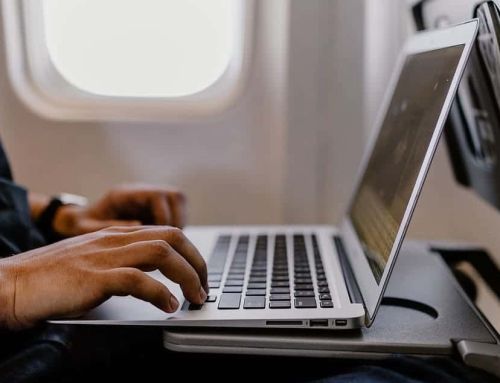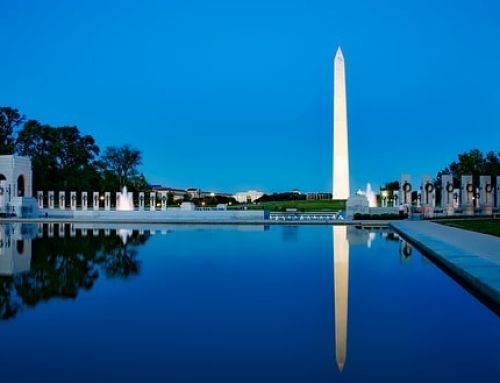Questions about US Border Control – What to Expect When Entering the US
21 Jul 21:53
You have your US visa, a current passport, and an airline ticket. Entering the United States should be a piece of cake, right?
Unfortunately, it is not that straightforward. Even with all of the essential travel documents, there is one more obstacle to overcome. Even if you have a US visa, crossing the border is not certain.
US border control inquiries, lengthy waits, luggage and security screenings, and other variables can all play a role in drastically limiting or prohibiting your admission into the US.
With that in mind, this essay will attempt to throw some light on what to expect while seeking to pass through US Customs and enter the land of the free.
Hopefully, it will make the procedure a bit smoother, and you will be able to visit the United States.
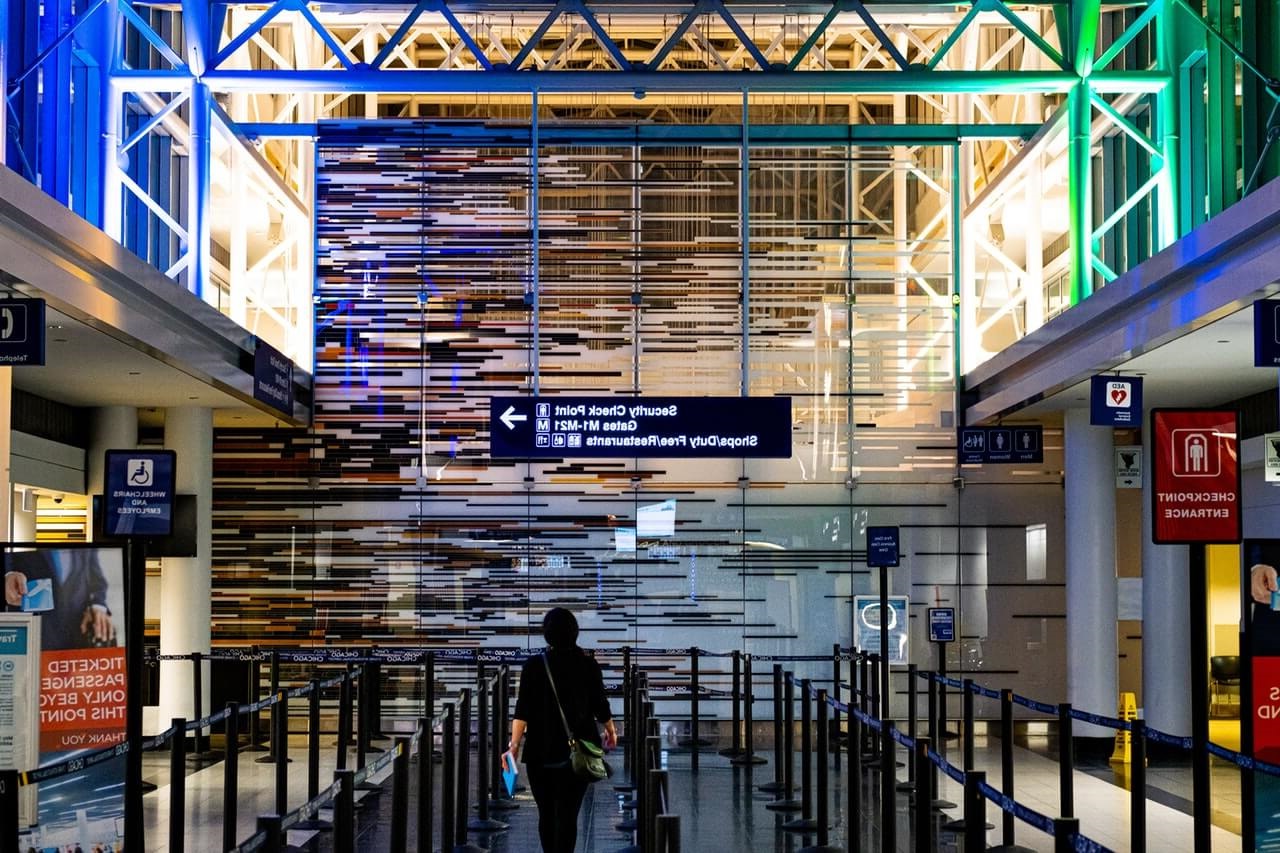
Visa Waiver Program
Before we go into what occurs when you get in the US, it’s worth noting that there is a visa waiver program for nationals of 39 countries.
The ESTA stands for Electronic System for Travel Authorization.
If you are fortunate enough to be eligible for this program, you may avoid many possible border crossing complications as long as you have thoroughly completed the application and paid the required price.
You’ll still need to answer ESTA questions via the online form, but it won’t be as time-consuming or difficult as applying for a US visa.
You will still be questioned by US Customs at the airport or other point of entry. It should be noted that an ESTA is presently only available for admission into the United States by sea or air.
This is great if you are just visiting from a nation such as the UK for up to 90 days. Ideal for a tourist or business trip, or if you want to visit family in the United States.
For further information, see the distinctions between a US visa and an ESTA.
If you’re using the ESTA program to enter the US, make sure you correctly complete the relevant documents, don’t make any mistakes, and don’t make any jokes or falsify information in any manner.
Many persons have been refused entrance due to ESTA form flaws or incorrect responses to US border control inquiries.
You must also file this application at least 72 hours before arriving in the United States. It is possible to do it at the last minute, but it may not be processed in time, resulting in your inability to board the plane or cruise ship.
TRAVELING TO THE UNITED STATES?
Do You Have U.S. ESTA VISA Travel Authorization? If You Have ESTA Application, Check if it is Still Valid!
At the Entry Point
When you arrive in the United States, you will go through customs before being allowed to enter the nation.
Don’t forget to collect any checked-in luggage you may have. This is generally often done before going through passport control.
At passport control, two or more lines normally segregate US passport holders and nationals from all other foreign nations. To begin, ensure that you are on the right line. If you want assistance, staff should be there to assist you.
Lines are frequently long, and delays are common. Queuing might take some time before you are seen by a customs agent who will begin the US border control questioning.
Before approaching the desk, remove any caps or scarves – or anything else that may disguise your face from the police on duty.
The use of mobile phones or other gadgets is not permitted throughout this process. Take no pictures in the Customs and Border Protection sector.
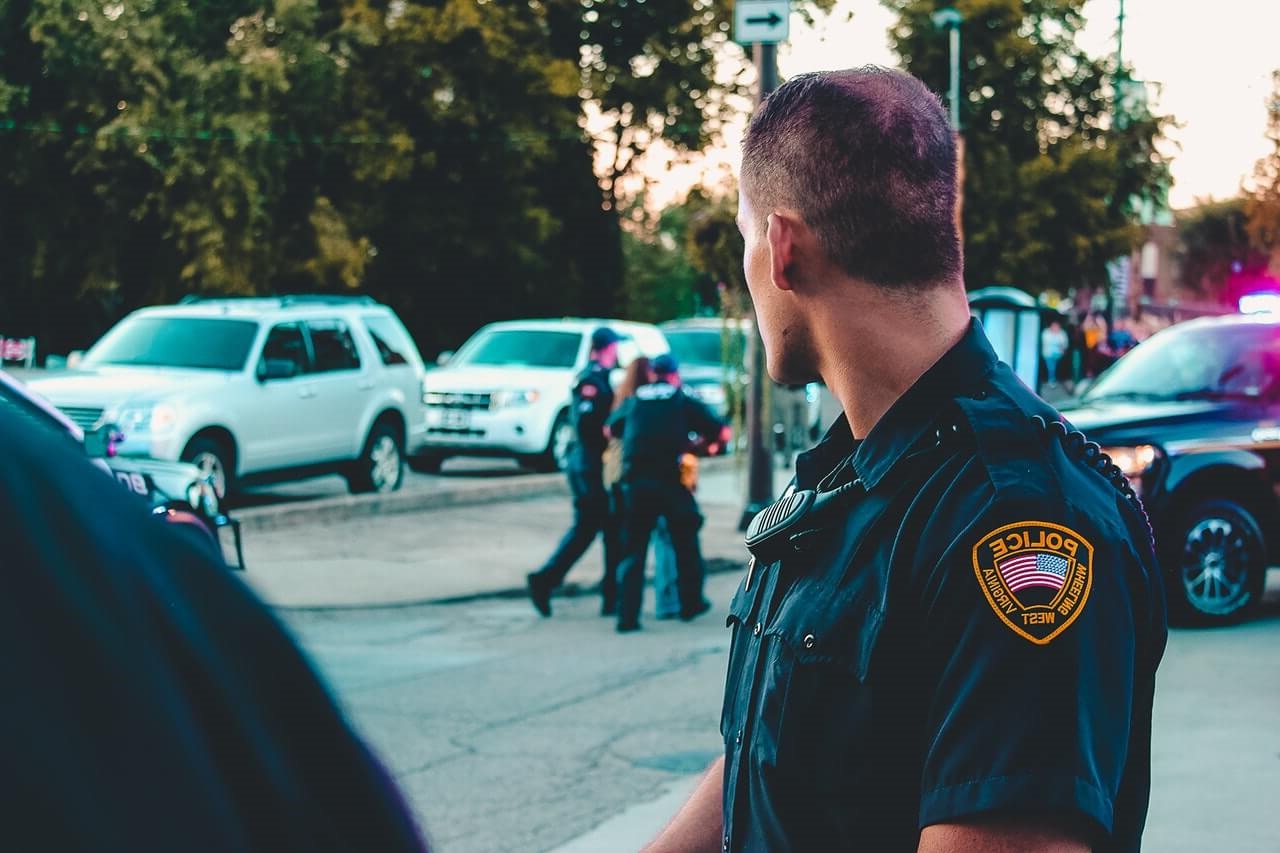
Border and Customs Protection
When it’s your turn in line to go through passport control, you’ll meet face to face with a Customs and Border Protection (CBP) officer. The CBP is your final checkpoint before entering the United States.
Even if all of your papers and documentation are in order, it is up to this officer to decide whether or not you are permitted to cross the border.
Be warned that they are unlikely to be pleasant to deal with and will scarcely crack a grin. You should not expect to laugh and joke with them. They are incredibly dedicated people that take their professions seriously, and they visit thousands of people every day.
Hand over your travel papers, and if you’re arriving on an immigrant visa, now is the time to hand over the hefty, unopened document packet you got during your visa interview at the US embassy.
This is typical procedure and entirely acceptable. They need to keep the lines moving for other individuals entering the country, and if you’re entering on an immigrant visa, they’ll need to verify extra paperwork to ensure everything is in order.
Remember, security is their first priority, and they have been educated to be cautious and skeptical. It is critical that you answer all US customs entrance questions honestly and respectfully.
If you are giving up a sealed envelope as part of your visa at your port of entry, either the CBP or a coworker will accompany you to another room or waiting area until further notice.
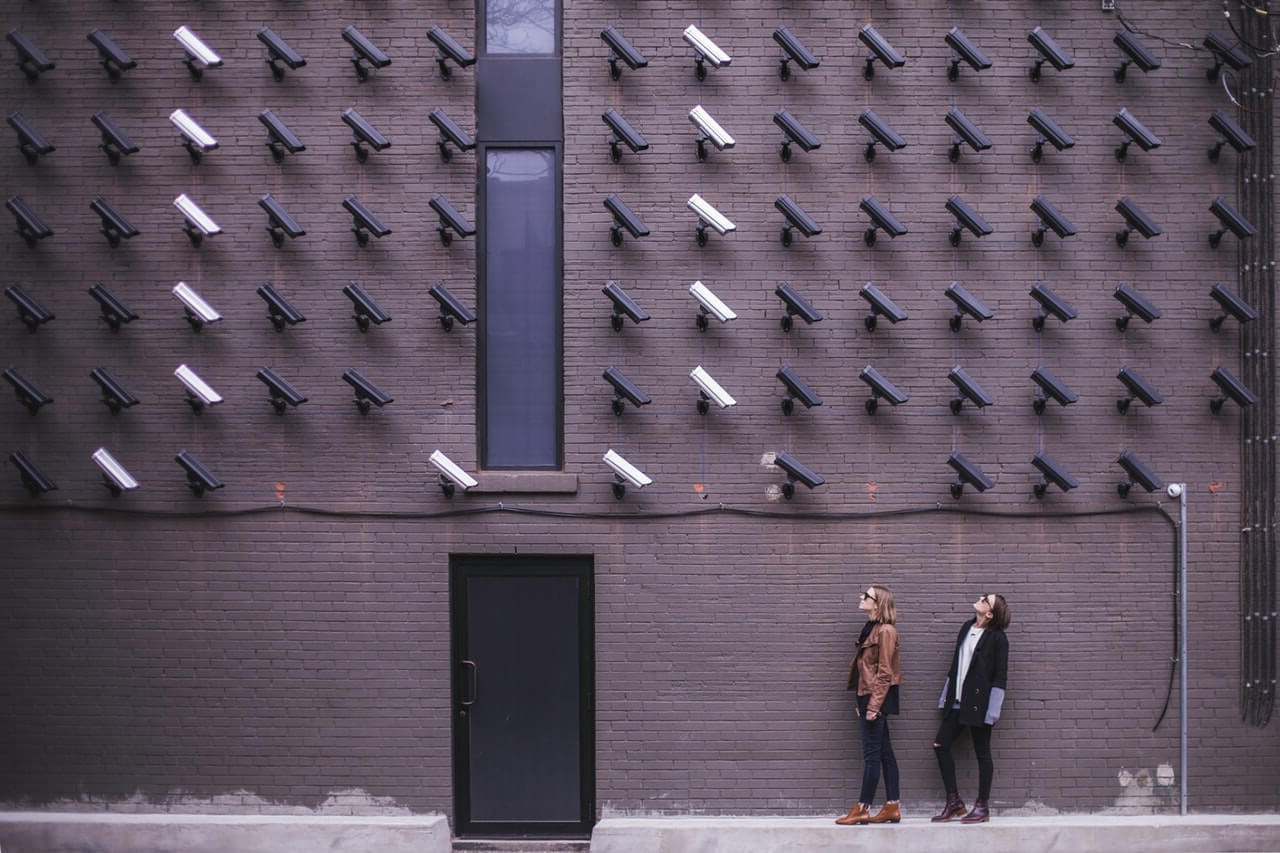
Questions & Answers about US Customs
The CBP officer will ask you a series of questions about yourself, your visa, and your admission into the US.
You should respond openly and honestly, therefore it’s well worth your time to acquaint yourself with some of the probable customs questions at the airport so you know what to expect when you arrive.
These questions will very certainly contain some or all of the following, depending on the type of visa you have.
Potential replies have been given guidance.
What is the reason for your trip to the United States?
Your response here must exactly reflect what is written on your visa. If you enter the nation on a K-1 fiancée visa, for example, you must notify CBP that you want to marry your spouse. Just don’t count on them congratulating you.
It might also be for research, tourism, family visits, or business. Remember not to make any jokes about why you want to join the US.
How long do you plan on staying in the country?
This will mostly be asked of persons intending a brief visit to the United States, such as citizens arriving on a tourist or business visa. You must never pretend to be staying for a period of time longer than stipulated in this article.
What is your line of work?
It’s as simple as that; just make sure you respond accurately. If you’re a journalist, it’s best to say “teacher” in some places, but always be completely honest with the CBP here.
What is your address for the duration of your stay?
At the absolute least, you should know where you’ll be staying on your first night. “I’m not sure” is not an acceptable response. Tourist and business visa holders must submit the name and address of their hotel or lodging. If you are visiting relatives, please include your home address. There are no excuses; you must have this information on hand.
Who are you going to see?
You could not be visiting someone and are merely there for leisure purposes. You should be able to offer contact information for the firm or individual with whom you are working. This question is unlikely to be asked of anybody on a K-1 fiancée visa, although you may be asked the date and place of your wedding.
How are you going to pay for this trip?
Again, this is normally only asked of visitors to the United States on a transitory basis. Officials will want to see proof that you can pay for your journey and any other expenses you may incur during your stay.
Have you ever been convicted of anything?
They might be more precise here, alluding to major crimes such as homicide, drug-related charges, terrorism, people or sex trafficking, organized crime, and subversion. You may have already passed police background checks in order to acquire the visa, but CBP officials are meticulous.
Do you intend to carry any beverages or food into the United States?
There are severe restrictions limiting what you may and cannot bring into the United States, including food, livestock, perishable products, and liquids.
For additional information on what you may and cannot bring through US customs, see this list of restricted items.
If you carry something forbidden through customs, you have the option of declaring it, having it confiscated, and having it destroyed. CBP may take additional action depending on the nature of the forbidden item.
What are your plans when you finish your studies here?
Obviously aimed for students planning to study in the United States, customs authorities will want to know that you have a plan in place once your course is over.
Have you ever been to X country?
Customs authorities nowadays are distrustful of anyone who has visited a nation with a less-than-exemplary record of friendly foreign relations with the United States. Expect some extra grilling if you’ve travelled to Iran, Syria, Libya, or North Korea.
When and where are you departing the United States?
CBP will want to know when and from which port temporary visitors will depart the country. This is merely to ensure that you know when you must go and that you do not illegally overstay your welcome.
Are you affiliated with or a member of a terrorist organization?
It may appear to be the most ridiculous question known to humans (nobody will ever confess to this), yet it has been known to catch people off guard. It’s also very uncommon for someone to make a joke and respond yes to this question, which results in them being delayed for many hours and/or denied admission.
Please keep in mind that this collection of US customs questions and answers is not complete, and it is recommended that you conduct more study based on your unique visa.
Failure to answer any of these questions satisfactorily may result in what is known as a secondary inspection, in which you may or may not be held for longer than expected until the relevant information is obtained.
You may also be chosen at random for secondary inspection, since they frequently perform random inspections on people seeking to enter the United States. Prepare for the worst.
Baggage Checks
CBP officials have the authority to stop and search anybody crossing the border into the United States. Expect them to search your possessions and request that you turn out any bags or baggage you’re carrying with you.
Usually, this is only a precaution and may occur at random, but they will surely inspect your luggage if they believe you are carrying anything unlawful or contraband.
They may also seek to examine your smartphone or laptop. For further information about electronic gadgets, see the FAQ section below.
TRAVELING TO THE UNITED STATES?
Do You Have U.S. ESTA VISA Travel Authorization? If You Have ESTA Application, Check if it is Still Valid!
Photographing and fingerprinting
If the CBP officer determines that you are able to enter the country legally, you will be asked to look into a camera device to take your mugshot.
If you are wearing specs, you should take them off.
After that, you must give your fingerprints by placing four fingers from each hand on a fingerprint scanner. Pressing your thumbs together will result in the digital scan being completed.
Following this procedure and any required final inspections, the CBP should stamp your passport, indicating that you are now legally permitted to enter the United States.
That wasn’t so difficult, was it?

FAQs
1. How long will it take to cross the border into the United States?
It depends on a variety of circumstances, including how many people have arrived at the moment, the sort of visa you’re attempting to obtain, whether or not everything is in order, and whether or not there are any disparities with your responses to US border control inquiries.
If everything goes as planned, it shouldn’t take more than an hour.
However, if you need to be sent to a secondary inspection or if there is any type of difficulty, it is not uncommon for individuals to be kept waiting for many hours before being permitted to leave or denied admission.
To summaries, be prepared to wait and develop patience. The last thing you want to do is confront CBP authorities.
You may use these border wait times to get an idea of how long it will take to cross at the major US ports of entry.
2. What exactly is CBP?
CBP is an abbreviation for Customs and Border Protection. They are one of the world’s largest police forces, and it is their responsibility to safeguard the United States from any threats seeking to enter the nation.
When you arrive in the United States, you will give over your passport and visa to a CBP officer. This individual will finally decide whether or not you are permitted to enter the border.
3. Is it necessary for me to dress formally?
Unlike at a visa interview, when it is recommended that you dress correctly, CBP inspectors do not expect you to be well-dressed.
They realise that you should be comfortable when travelling and that you may appear a little agitated during transit – especially if you’ve travelled a great distance to get there.
Although there is no dress rule for a US border interview, you should avoid wearing anything that is highly unpleasant, such as abusive T-shirt slogans, jackets, or patches.
4. Will my laptop or smartphone be inspected as part of the US immigration process?
Perhaps, but they only have the authority to check what is instantly on your phone or gadget, and they are not permitted to connect it to another machine or the cloud to dig further.
As a result, if you are requested to hand up your electronic devices, you will be required to first put them on aeroplane mode.
CBP will only require this if they feel something is amiss. Most border crossers are never requested to display their gadgets.
If you are concerned about your privacy and do not want to risk having your electronic devices checked, then do not bring them across the border. Before you take your aircraft, place them in your checked luggage.
5. What happens if I answer a question incorrectly?
It’s reasonable that some people may become agitated and answer a border control question inaccurately.
This should not be a problem if you fix yourself and the CBP is happy.
If they suspect something more nefarious, or if they just need more time to make a conclusion, you will almost certainly be sent for a supplementary examination.
However, if you’ve prepared thoroughly and gone through articles like this one, answering poorly should be impossible.
If you’ve faked any information, or if there are obvious problems or conflicts between your travel documents and tale, you should be concerned.
If this is the case, you risk being refused entrance and even detained.
6. Do I need to bring copies of my documents?
Back up copies of all your travel papers, as well as the big sealed envelope from your visa interview if applying for an immigrant visa.
It is critical that you have these documents with you and have not packed them away or checked them in unintentionally in your luggage.
If you do not present any documentation when required, you will most likely be denied entrance. Always keep color photocopy backups on hand.
7. Can I be arrested for failing to respond to questions?
Yes. If you refuse to answer the customs official’s queries, you may be held until they have satisfied the essential criteria that you are either lawfully permitted to enter the United States or refused entry.
You have the right to keep silent if you like, but officials are likely to bar you from crossing the border and thoroughly inspect your things and person as a result.
You cannot usually be arrested for refusing to answer questions. Getting detained is not the same as being arrested.
If CBP needs to ask you more questions and perform a more thorough investigation, it should always be done professionally and without undue force.
You should never be held on ethnic or religious grounds, and if you have a complaint, you may always seek to talk with a supervisor.
8. Can I bring a lawyer with me when I try to enter the United States?
No. You are not permitted to have a lawyer when attempting to cross the border at a port of entry. You will also be unable to contact one during the procedure.
Of course, you may consult an immigration lawyer before your trip, or afterward if you’ve been refused admission for any reason and need assistance on the next steps to dispute the decision.
If you are arrested while attempting to enter the US border, you have the right to consult with a counsel.
9. What if they refuse to allow me in?
The CBP officer will inform you of the reasons why you are not permitted to enter the country.
Most of the time, this is due to someone forgetting a crucial document, flaws in the application, or problems with particular trip details.
Overstaying visas, as well as out-of-date documentation, might be a problem.
Your next step is determined by the cause for your inadmissibility. In some situations, it may be simple to overturn. In others, you may have to restart the visa application procedure from your native country.
You will be turned back and forced to pay a return ticket. If you already have a return ticket, you may be able to utilise it in this situation.
In other situations, you may be denied a reapplication for a visa and barred from entering the United States.
Arguing with Customs and Border Protection at the border is not a smart idea. You must accept their decision and move forward.
However, you should calmly ask them questions, take notes, and then gather yourself in a quiet area and contact an immigration lawyer if you are seeking to enter on a visa.
You cannot dispute any action in deportation if you have been refused entrance on a visa waiver program.
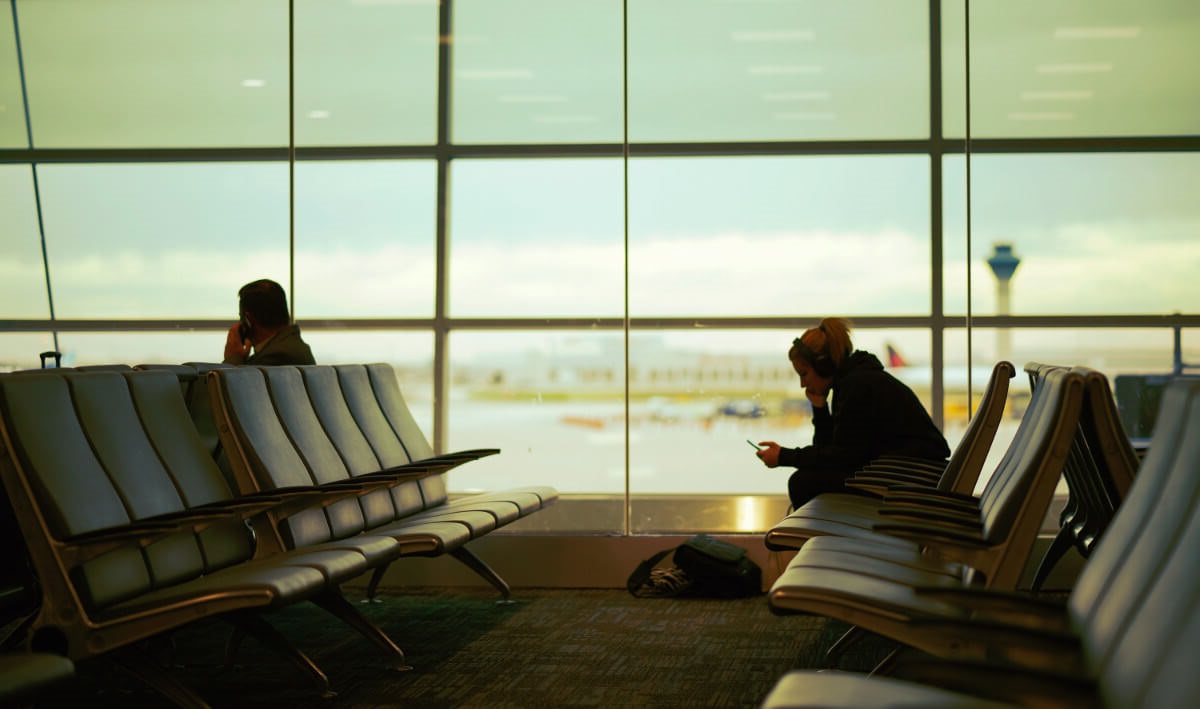
Final Advice
Remember that preparedness is essential. The most common reason for persons being refused admission into the United States is due to simple flaws in their documentation – or even not having the necessary information with them when interrogated at the border.
Before you go, double-check everything, rehearse potential interview questions, and ensure there are no errors in any of your paperwork.
Summary
The US border control questions may appear intimidating at first, but as long as you’ve done thorough preparation and have all of your paperwork on hand, you shouldn’t have too much trouble.
Just remember to be honest and courteous at all times, and you’ll be on your way to your next adventure in the United States in no time.
Good luck!
























